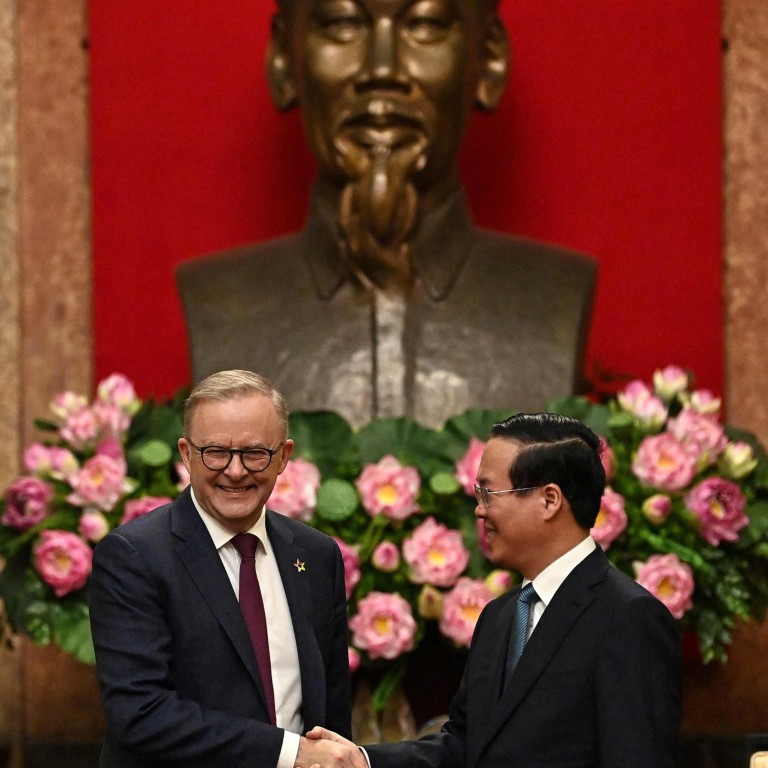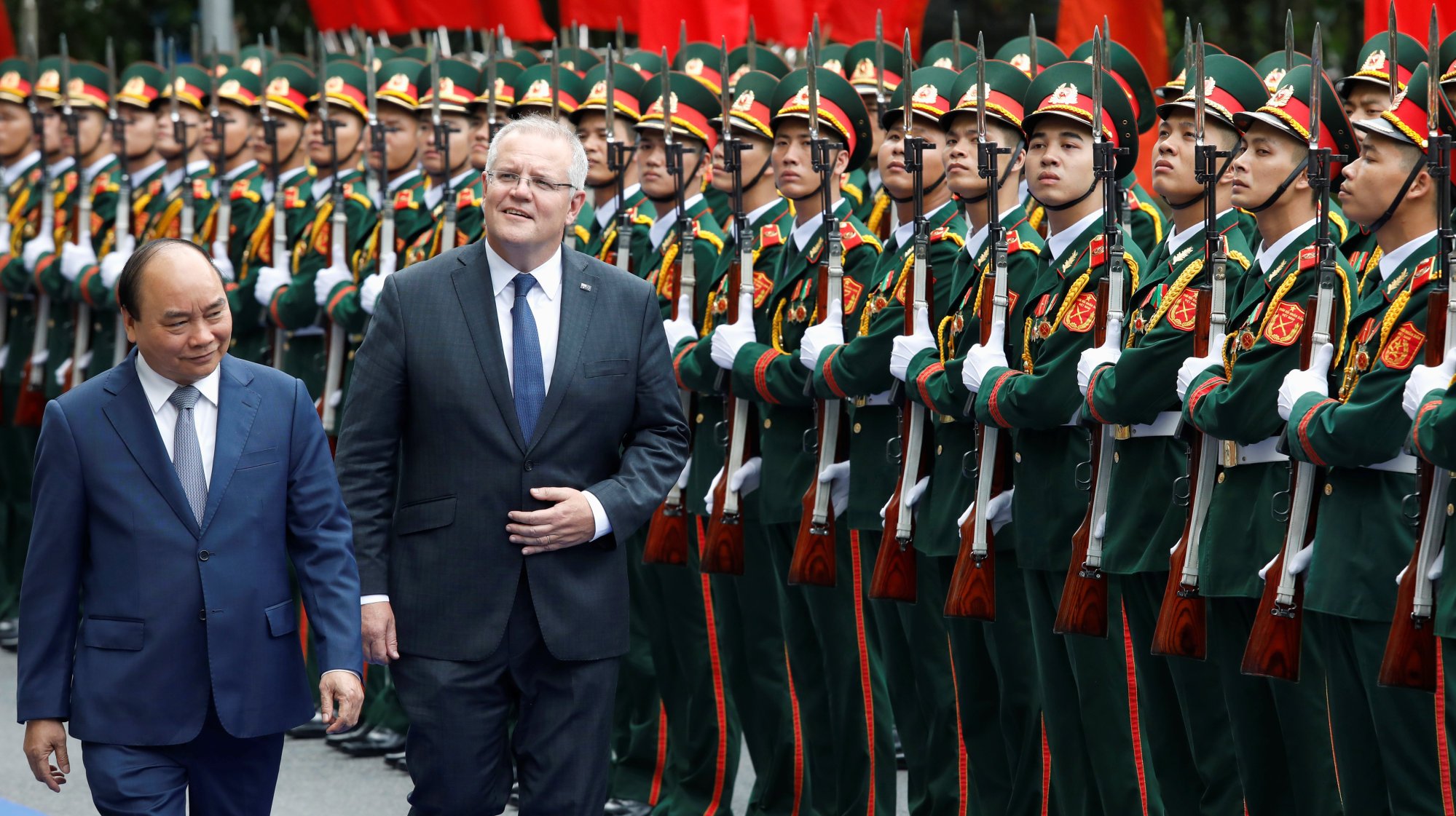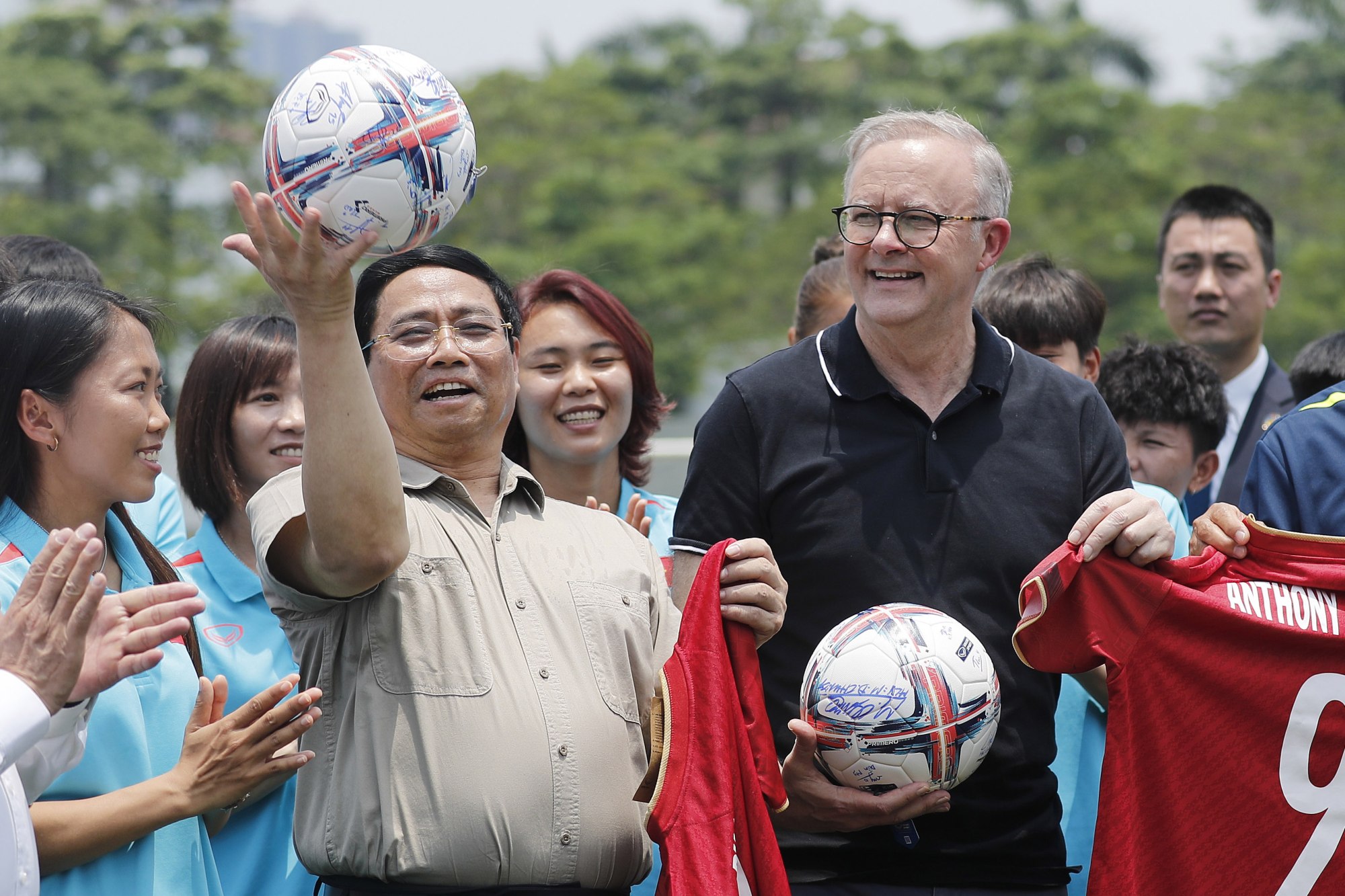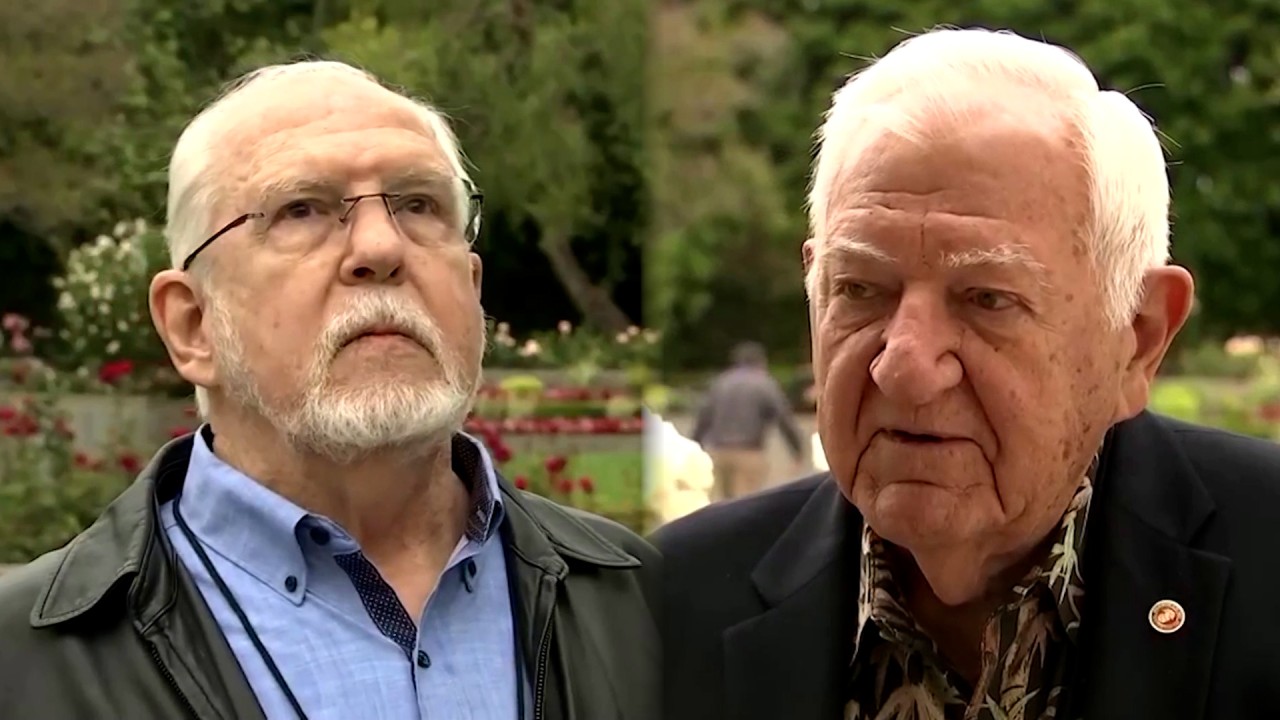
Australia-Vietnam ties crucial ‘on own terms’, not just in relation to US, China
- PM Albanese seems determined to rebuild regional relationships, taking the heat out of tensions with China and enhancing collaboration in the region
- His government also recognises that the significance of ties with middle-sized regional nations like Vietnam has diminished in recent years
As such, it was surprising to see that a nicely executed state visit to a mid-power in the region, which resulted in the mooted upgrading of a “strategic partnership” to a “comprehensive strategic partnership”, had failed to generate substantive headlines, or capture the public imagination.
Australians need to see the enhancement of regional partnerships such as the one with Vietnam as having significant interest, with implications for Australia’s future.
Decades of rebuilding relations
This year marks the 50th anniversary of the establishment of diplomatic relations between Australia and Vietnam. This was, of course, a particularly potent moment due to Australia’s involvement in the war in Vietnam (known there as the “American War”).
Over the course of the war, more than 60,000 Australians were deployed to the country and 523 died. The war and the means of its prosecution – particularly conscription – became heated points of polarisation domestically in Australia.
The cost of the war to Vietnam itself was incalculable.
Australian commitment to the war began to wind down from late 1970, with the last Australian troops returning home in December 1972, soon after the election of the Whitlam government. Australia’s involvement formally ended a month later.
The decades following the war were devastatingly difficult for Vietnam as it rebuilt itself amid international isolation, especially from the United States. A large number of refugees fled the authoritarianism of the new Communist regime, with many establishing strong and vibrant communities in Australia.
In 1986, the Vietnamese Communist Party announced its Đổi Mới reforms to transition the country from a highly centralised economy based on state ownership to a form of market socialism. This began a process of opening Vietnam up economically and politically to the world.
In subsequent years, there has been a bipartisan effort in Australia to consolidate the relationship with Vietnam in both economic and defence agreements.
During the visit of Vietnamese Communist Party General Secretary Nong Duc Manh to Australia in 2009, the countries upgraded their relationship to one of “comprehensive partnership”. In 2018, to mark the 45th anniversary of diplomatic relations, this was upgraded further to a “strategic partnership”.
There are obvious economic and diplomatic benefits to enhancing the connections between the countries. According to the Department of Foreign Affairs and Trade, trade between the countries has grown on average by 8.6 per cent per year over the past two decades.
But the attitude of the Morrison government to Vietnam was overtly inflected by its hardening hostility towards China.
Morrison trumpeted the growth in trade during his visit, but within the framework of his government’s foreign policy it was clear that such relationships were, relatively speaking, a sideshow to the main game: Australia’s future was bound to the United States.

Why Vietnam matters

Vietnam has experienced its own economic woes of late. It has a notable reliance on Australian coal for its power generation, and this is likely to remain the case in the short term. Its government is authoritarian. This should not be obscured in discussions of the two country’s relationship.
But Vietnam is a dynamic country with an economy that has been on the upswing. It also has a young population that is increasingly skilled and has showed itself to be globally connected.
Australia is a country increasingly integrating itself into the region and exploring new economic opportunities in renewable energy. Among the agreements Albanese signed in Hanoi was a US$105 million package to help Vietnam decarbonise its economy.
Australia also has a large population of citizens with Vietnamese heritage with enduring ties – both familial and economic – to Vietnam. Current exchanges in trade and education are mutually beneficial, and growing.
And all this is happening between two countries who, within living memory, were at war.
The experience of the Vietnam War should remind all Australians of the dangers of following the US in pursuing its foreign policy ambitions without regard for its own. And the current relationship with Vietnam shows how Australia can do it its own way.


